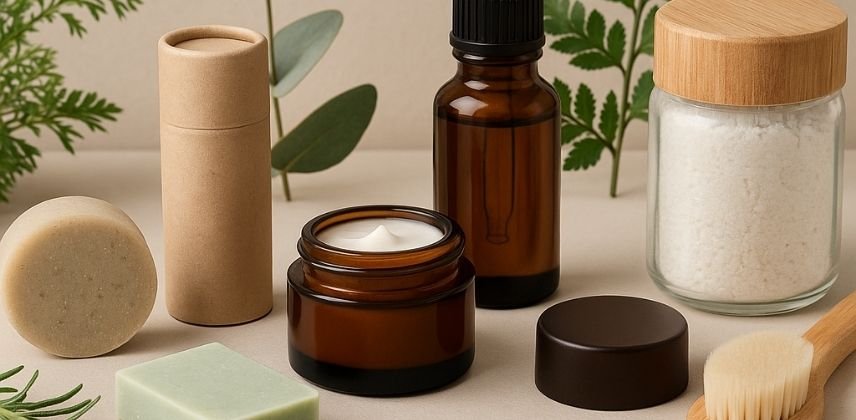Comprehensive Guide to Effective Dry Skin Care
Fortunately, with proper care and attention, you can alleviate dry skin and restore its natural moisture balance.

Introduction
Dry skin, also known as xerosis, is a common dermatological condition that can affect individuals of all ages. It occurs when the skin lacks sufficient moisture, resulting in symptoms such as flakiness, itching, redness, and a feeling of tightness. Dry skin can be caused by various factors, including genetics, environmental conditions, and lifestyle choices. Fortunately, with proper care and attention, you can alleviate dry skin and restore its natural moisture balance. In this comprehensive guide, we will explore a wide range of strategies and tips to help you take care of dry skin.
Understanding Dry Skin
Before delving into the ways to care for dry skin, it's essential to understand why it occurs. Dry skin can be classified into two main categories: intrinsic and extrinsic factors.
Intrinsic Factors:
a. Genetics: Some people are genetically predisposed to have naturally dry skin due to the way their skin produces and retains moisture.
b. Age: As we age, the skin's ability to retain moisture decreases, making it more susceptible to dryness.
c. Hormonal changes: Hormonal fluctuations, such as those experienced during pregnancy or menopause, can impact skin hydration.
Extrinsic Factors:
a. Environmental factors: Dry and cold climates, low humidity, and excessive sun exposure can lead to dry skin.
b. Harsh skincare products: Using harsh cleansers, soaps, or exfoliants can strip the skin of its natural oils, leading to dryness.
c. Hot showers and baths: Prolonged exposure to hot water can remove the skin's natural oils and worsen dryness.
d. Certain medications: Some medications can cause dry skin as a side effect.
e. Lifestyle choices: Smoking, excessive alcohol consumption, and an unhealthy diet can contribute to dry skin.
Now that we have a better understanding of why dry skin occurs, let's explore how to effectively care for it.
Daily Skin Care Routine
Gentle Cleansing:
Use a mild, fragrance-free cleanser specifically formulated for dry or sensitive skin.
Avoid hot water; opt for lukewarm water when washing your face.
Limit the use of harsh soaps and exfoliating products, as they can strip away natural oils.
Moisturizing:
Apply a rich, hydrating moisturizer immediately after cleansing while your skin is still damp.
Look for moisturizers with ingredients like hyaluronic acid, glycerin, shea butter, or ceramides.
Consider using a thicker, cream-based moisturizer for nighttime application to provide deeper hydration.
Sun Protection:
Apply a broad-spectrum sunscreen with at least SPF 30 every morning, even on cloudy days.
Sunscreen helps protect your skin from UV damage that can exacerbate dryness.
Humidifier:
Use a humidifier in your bedroom to increase the humidity level, especially during dry seasons or in arid climates.
Hydration:
Drink plenty of water throughout the day to keep your body and skin hydrated from the inside out.
Specialized Care for Dry Skin
In addition to your daily routine, consider incorporating these specialized care strategies:
Exfoliation:
Use a gentle exfoliant once a week to remove dead skin cells and improve the absorption of moisturizers.
Choose a product with mild exfoliating agents like alpha hydroxy acids (AHAs) or beta hydroxy acids (BHAs).
Face Masks:
Apply hydrating face masks formulated for dry skin to provide an extra boost of moisture.
Look for masks containing ingredients like hyaluronic acid, aloe vera, or colloidal oatmeal.
Bathing Tips:
Take shorter showers or baths with lukewarm water.
Add oatmeal, coconut oil, or a bath oil to your bathwater to help retain moisture.
Pat your skin dry gently with a soft towel after bathing; do not rub vigorously.
Avoid Irritants:
Be cautious with products containing alcohol, fragrances, or harsh chemicals, as they can irritate dry skin.
Choose hypoallergenic and fragrance-free products.
Clothing:
Wear breathable, natural fabrics like cotton and avoid materials that can cause irritation, such as wool.
Consider wearing gloves during cold weather to protect your hands.
Diet:
Consume a diet rich in fruits, vegetables, and healthy fats like omega-3 fatty acids to support skin health.
Consider adding foods with essential fatty acids, like salmon and flaxseeds, to your diet.
Hydrating Mist:
Keep a hydrating facial mist handy to refresh and moisturize your skin throughout the day.
Medical Intervention
If your dry skin is severe or persists despite diligent care, it may be necessary to consult a dermatologist. They can assess your condition and recommend appropriate medical interventions, such as:
- Prescription creams: Dermatologists can prescribe stronger moisturizers or topical medications to address specific skin issues.
- Ointments: Thick ointments, such as petroleum jelly, can be highly effective for sealing in moisture.
- Topical steroids: In cases of inflammation and itching, topical corticosteroids may be prescribed for short-term use.
- Prescription medications: In some cases, oral medications may be recommended to manage underlying conditions contributing to dry skin.
Preventing Dry Skin
Prevention is often more effective than treatment. To reduce the likelihood of developing dry skin, consider these proactive measures:
- Limit hot baths and showers: Avoid long, hot baths or showers, which can strip your skin of natural oils.
- Use a humidifier: Maintain a comfortable indoor humidity level to prevent excessive dryness, especially during the winter months.
- Protect your skin: Wear appropriate clothing and sunscreen when exposed to harsh environmental conditions.
- Stay hydrated: Drink enough water to keep your body and skin hydrated.
- Avoid harsh products: Choose skincare and cleaning products that are gentle and suitable for sensitive or dry skin.
In summary, effective dry skin care involves a gentle daily routine, moisturizing, sun protection, and hydration. Specialized treatments like exfoliation, masks, and bath tips can provide additional relief. Avoid irritants, choose skin-friendly clothing, and maintain a balanced diet. For severe cases, consult a dermatologist for medical interventions. Prevention through healthy habits is crucial for long-term skin health.
Conclusion
Caring for dry skin requires a combination of daily skincare practices, specialized care, and preventive measures. By understanding the factors that contribute to dry skin and implementing the strategies outlined in this comprehensive guide, you can effectively manage dryness, soothe discomfort, and achieve a healthier, more radiant complexion. Remember that consistency is key, and if your dry skin persists or worsens, consult a dermatologist for personalized guidance and treatment options.
Share
What's Your Reaction?
 Like
2
Like
2
 Dislike
0
Dislike
0
 Love
0
Love
0
 Funny
0
Funny
0
 Angry
1
Angry
1
 Sad
0
Sad
0
 Wow
0
Wow
0


















1
1